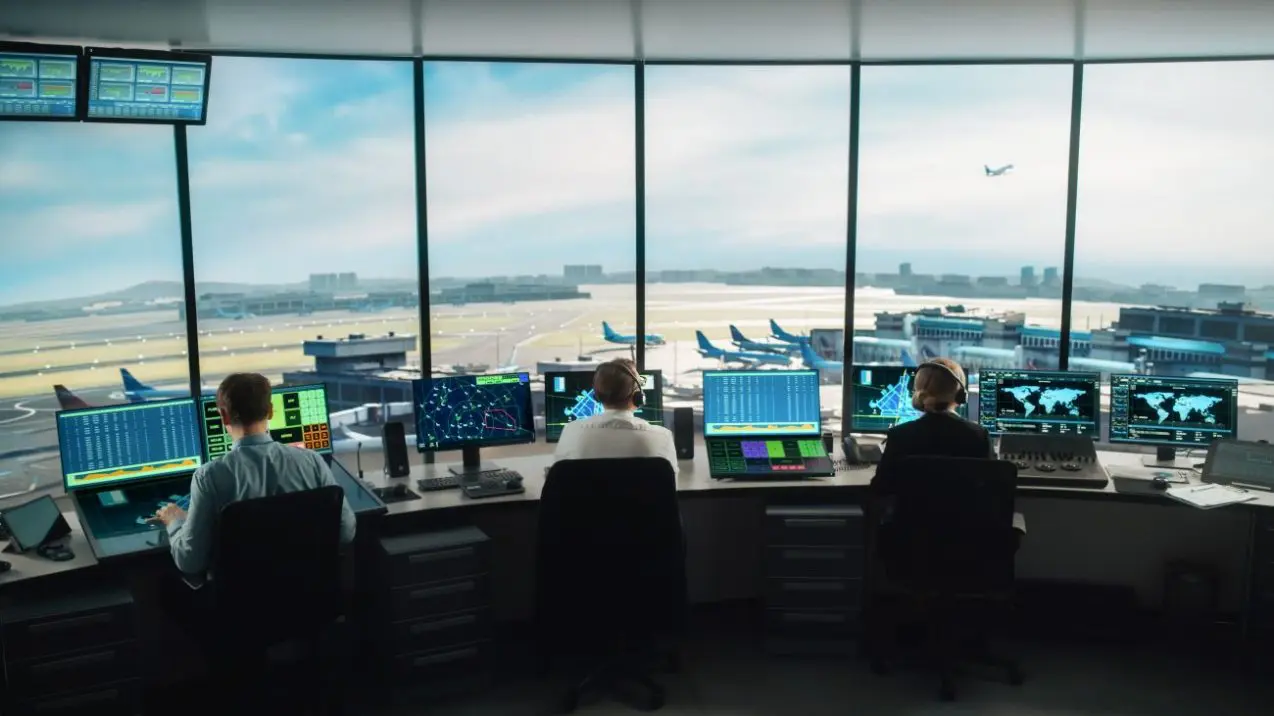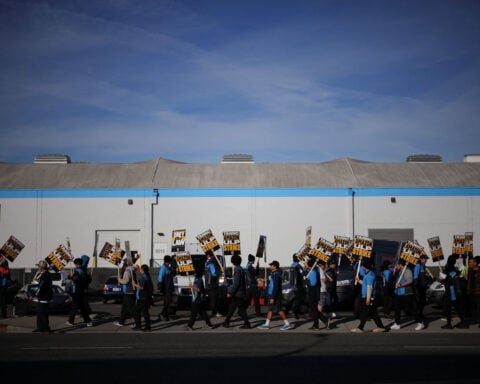A nationwide air traffic controller shortage has forced intensely demanding schedules and deteriorating working conditions, fueling a dangerous increase in mistakes guiding planes. Fatigued and demoralized, some controllers report nodding off during shifts while others show up drunk - alarming violations jeopardizing passenger safety.
Hundreds of incident reports describe distraught employees struggling with impossible overtime burdens amid understaffing crisis levels. Controllers manage unfathomable stress directing thousands of lives daily. But current excessive strains break even the most dedicated.
While recent years saw traffic rebound from the pandemic, controller numbers significantly declined over the past decade despite elevated retirements requiring replacement. Reduced federal budgets tightened hiring and training. But solutions remain slow, with relief years away per internal projections.
This full-blown emergency manifests in data - significant technical errors rose over 65% this fiscal year over 2021. Though still rare, close calls now average multiple weekly, with some controllers predicting inevitable catastrophe absent change. Numerous exhaustion-caused mistakes already slipped through the cracks.
Tower blackouts force stair climbs. Bugs swarm darkened radar rooms. Swealtering heat alternates with frigid cold. But even if modern facilities welcomed them, exhausted controllers may prove incapable of functioning without fundamental schedule reform.
For most, six days a week are standard. Absent proper weekend recovery, consecutive ten hour shifts obliterate any work-life balance. Bodies strain beyond capacity, chanelling adrenaline to power through meltdowns imminent. Routine deprivation erodes judgement, patience and empathy.
Some turn up drunk, high or violent to cope with despair. Others simply escape, accelerating staff turnover. But many avoid seeking mental healthcare for necessary conditions like anxiety, depression or PTSD out of stigma or medical clearance concerns jeopardizing their jobs. No easy fixes present amid this downward spiral.
Despite the profound skill, passion and commitment among this elite professional class, most tolerate untenable extremes. But brutal conditioning carries consequences beyond isolated incidents. A pattern emerges revealing systems and culture cracking under unprecedented duress.
Having sacrificed health and family life for an agency failing them, despair prevailed for Atlanta controller Ashley Smith. Colleagues came to blows frequently as errors mounted. Fearing some imminent mid-air collision after constant unrelenting exhaustion, Smith quit believing reform futile.
A different controller tallied caffeine intake exceeding ten cups some days amid relentless overnight shift cycles destroying sleep and digestive health. Doctor warnings to resign went unheeded. His family depends on the income and pension. But the extreme fatigue brings regular performance lapses, tempting fate.
Controllers love directing aircraft, taking pride holding supreme responsibility. But most suffer mandatory overtime scraping by severely understaffed facilities, impossibly overworking skeleton crews clinging to safety's edges almost entirely on grit. None can succeed under death march conditions without higher support.
AlreadyMAP, a nonprofit supporting air traffic progress, warns of unprecedented turmoil across a deeply distressed workforce pleading exhaustion. Staffing challenges significantly raise broad safety risks until substantially addressed. But solutions require multifaceted efforts and years.
Immediate intervention must improve conditions and boost morale for exhausted existing teams squeezed beyond humane limits. Parallel long-term hiring and training initiatives prepare strong pipeline supply meeting traffic growth without requiring extreme sacrifice.
Pre-strike Reagan administration firings initiated instability ultimately hobbling stability and resiliency. But fault now lies with chronic underfunding and unrealistic constraints that forced the present untenable state. Rectifying decades of erosion remains complex but essential for restoring the system.
In the interim, modest gains through schedule flexibility and reduced overtime constitute progress. Small relief relieves massive individual burdens. Though traffic continues climbing, staffing plateaus and pay cuts without projected controllers leaving risks emergency scenarios seen recently.
Current circumstances beg whether averting disaster depends on scrounging operational and training funds elsewhere until debt ceilings lift. But allowing further deterioration through squeezed budgets or debt restrictions seems reckless given the immense risks. Some catastrophe becomes statistically inevitable absent all possible intervention.
With passenger lives in their hands, air traffic controllers require and deserve manageable working environments supporting reliable performance. But that breaks down lacking personnel depth to share loads. Immediate relief for these everyday heroes grounded in duty now prevents accidents later. Delay risks tragedy.

 Cats can get sick with bird flu. Here's how to protect them
Cats can get sick with bird flu. Here's how to protect them
 An uneasy calm settles over Syrian city of Homs after outbreak of sectarian violence
An uneasy calm settles over Syrian city of Homs after outbreak of sectarian violence
 LL Bean agrees to injunction to end Skechers shoe lawsuit
LL Bean agrees to injunction to end Skechers shoe lawsuit
 WHO chief says he was at Yemen airport which Israeli strikes targeted
WHO chief says he was at Yemen airport which Israeli strikes targeted
 Organizers say two sailors have died in Sydney to Hobart yacht race amid wild weather conditions
Organizers say two sailors have died in Sydney to Hobart yacht race amid wild weather conditions
 Column-Why US Congress restored Social Security benefits for public-sector retirees: Mark Miller
Column-Why US Congress restored Social Security benefits for public-sector retirees: Mark Miller
 Peru declares environmental emergency after oil spill
Peru declares environmental emergency after oil spill
 Holiday travelers are facing flight cancellations as severe storms roll into the South
Holiday travelers are facing flight cancellations as severe storms roll into the South
 Miami Hurricanes men’s head basketball coach Jim Larrañaga steps down, cites NIL: ‘I’m exhausted’
Miami Hurricanes men’s head basketball coach Jim Larrañaga steps down, cites NIL: ‘I’m exhausted’
 Air Traffic Controller
Air Traffic Controller







